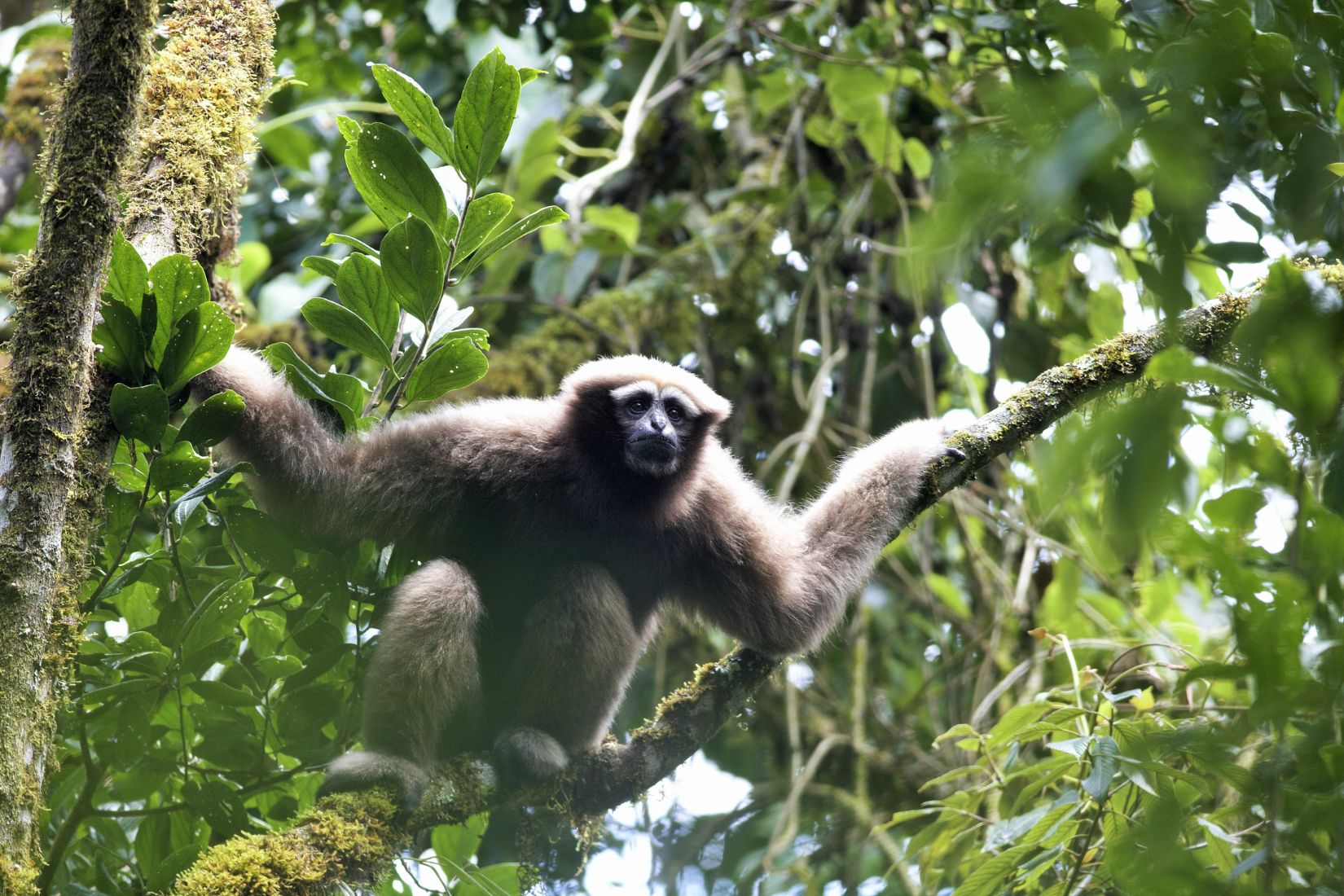Where does the endangered Skywalker hoolock gibbon get its unusual name? Why do they sing? And what do they eat? Learn all about this endangered ape with our expert guide.
The endangered Skywalker hoolock gibbon – or simply Skywalker gibbon – was first identified in China in 2017. Following its discovery, additional research, including acoustic monitoring of the gibbon’s morning songs, confirmed that the species’ range stretches into Myanmar.
The Skywalker hoolock gibbon is a close relative of the eastern hoolock gibbon, with key differences including thinner eyebrows and a dark beard (instead of a white one).
Skywalker hoolock gibbon: their evocative song
What is a Skywalker hoolock gibbon?
Skywalker hoolock gibbons (Hoolock tianxing) are small apes with light to dark brown fur in females and black fur in adult males. They have long arms, with males typically larger than females.
They are known for their loud calls used for territorial defence, mate attraction and communication within family groups. They are highly arboreal, spending most of their time in the forest canopy.
- 10 animals named after Star Wars characters, from Jedi ants to Skywalker apes
- ‘Theory of mind’ demonstrated in great apes
- What are primates?
Skywalker hoolock gibbon behaviour
They are skilled climbers and brachiators, swinging from branch to branch with ease. They live in small family groups, maintaining strong social bonds through grooming, playing, and vocalising.
Like other gibbon species, they are territorial and will defend their home ranges through vocal displays and occasional physical confrontations with neighbouring groups.

What do Skywalker hoolock gibbons eat?
Skywalker gibbons are frugivorous, primarily relying on fruits for nutrition. They also consume leaves and insects.
Why is it called a Skywalker gibbon?
And finally, the story behind the name… The scientists who first discovered the species in 2017 were Star Wars fans. It only seemed natural that they should name the gibbon after their favourite character.